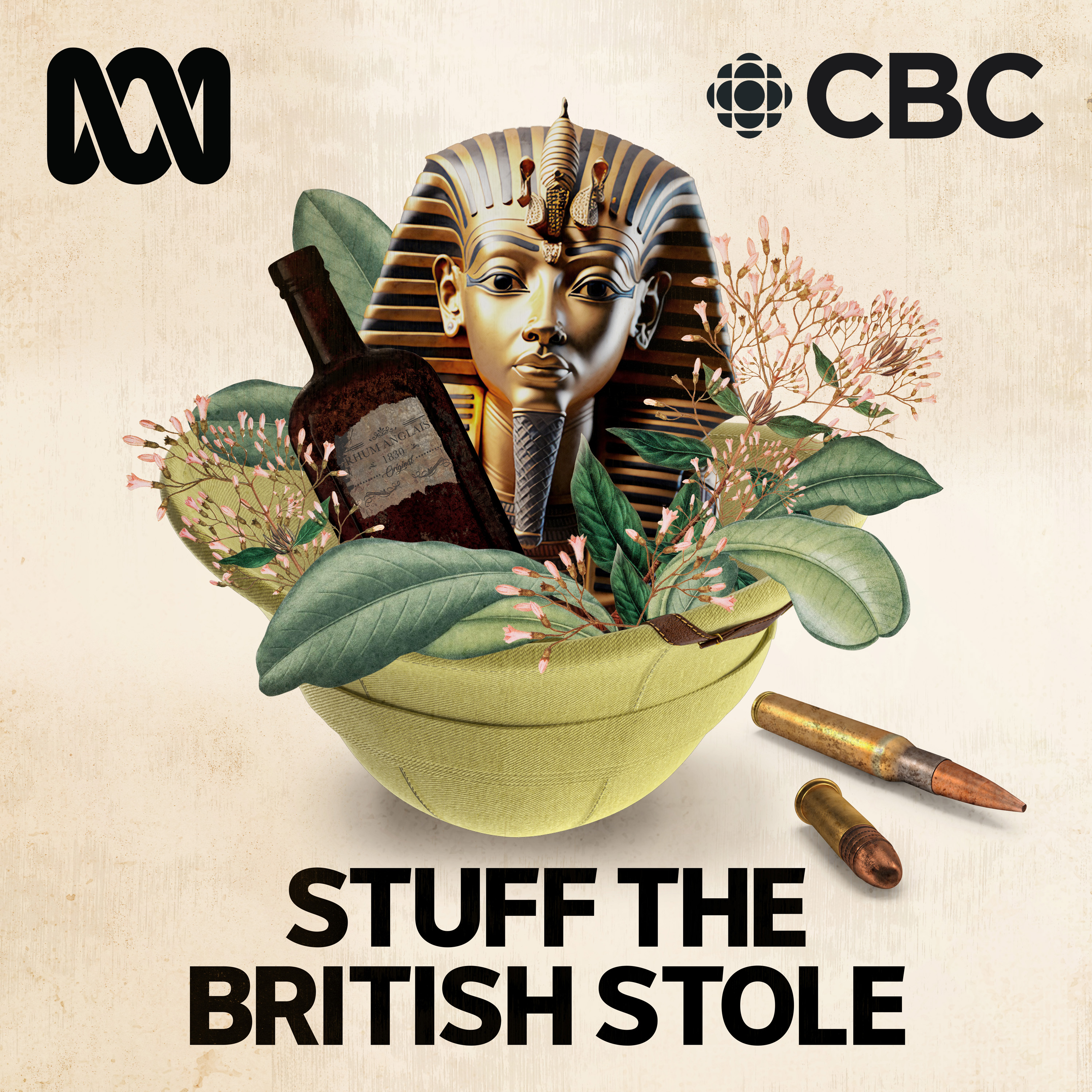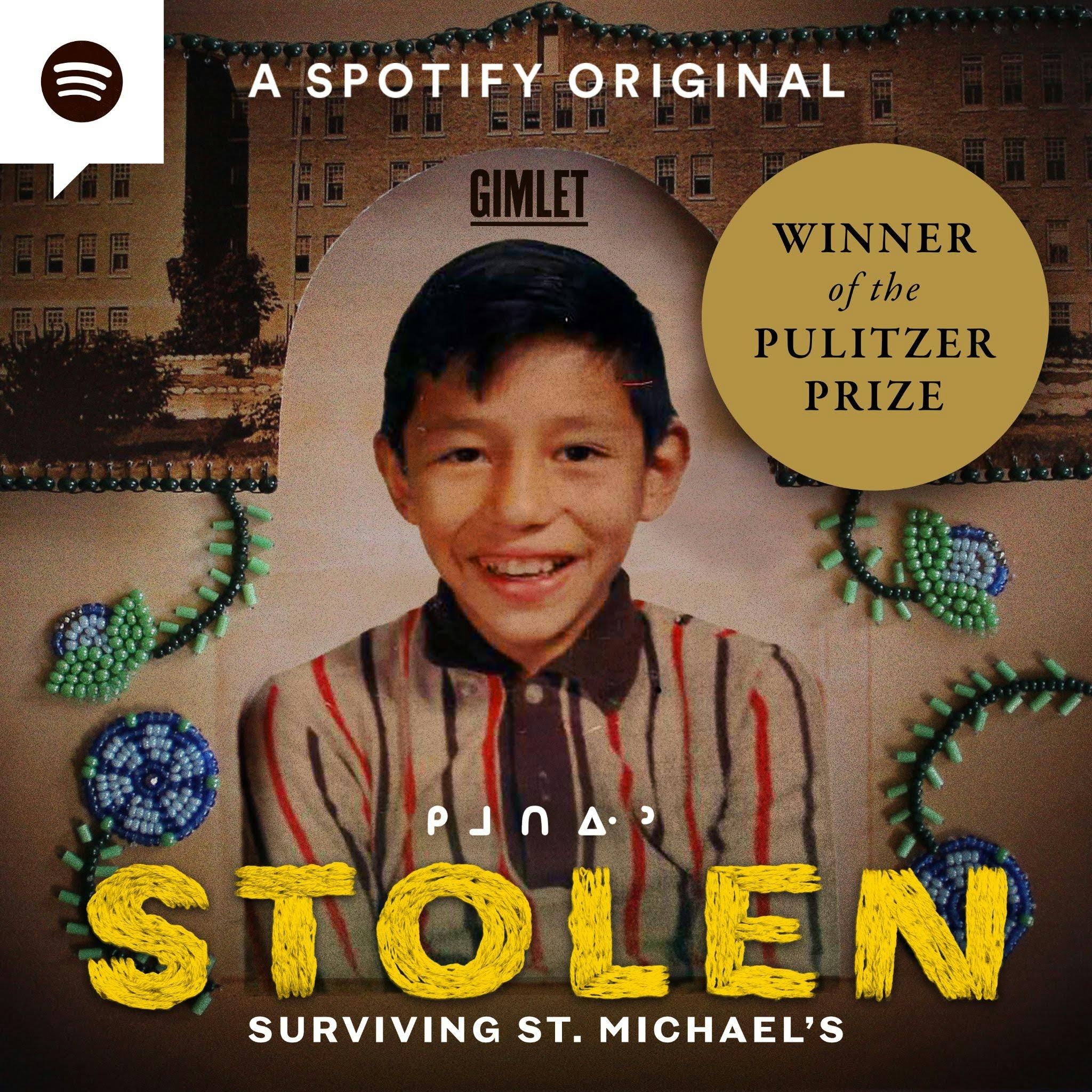
Red Rice & Fina'denne'
A storytelling podcast where your host, Jay Castro, navigates connection to his CHamoru heritage and the people from the Mariana Islands. Red Rice and fina’denne’ sauce is a staple to the CHamoru cuisine, and it's been part of our people for a long time. The rice is stained with achiote, and the fina’denne’ sauce gives traditional dishes like red rice, a pop—a taste that has you going back for more. And just like red rice and fina'denne', this podcast will talk story—but that’s the pop—that talk that’ll have you coming back for more. Learn more at https://hafaadai.org/
Red Rice & Fina'denne'
Taotao Tåsi: Part 7 In Da Marianas
Hafa adai and welcome to Taotao Tåsi 🌅 People of the Ocean 👋🤙
This is Part 7 In Da Marianas 🇬🇺🇲🇵.
If you're new here, start at Part 1 On Da Beach 🏝️
The Taotao Tåsi series takes us on a voyage through the Pacific Ocean with Palu Larry Raigetal, a traditional master navigator of the sea. Across the vast Pacific, where deep blue waters shift to brilliant turquoise, lies a story of cultural reconnection that speaks to anyone who's ever longed for home. This voyage reveals how indigenous knowledge systems and Western education can complement each other, creating pathways for cultural reconnection and identity affirmation.
--
Tracks provided by Sabyu, from the Navigator EP
Support Palu Larry's nonprofit organization Waa'gey
Read more about Micronesian cultures at Guampedia.com
Check out the Sea Grant program that supports Palu Larry teaches at the University of Guahån (Guam)
Taotao Tasi Part 7: In the Marianas
===
[00:00:00]
[00:00:05] Jay Castro: The vast Pacific stretches behind us, endless and deep, but ahead. The water shifts from a deep blue to a brilliant turquoise. As we approach the Marianas, the scent of salt and distant rain moves with a breeze mixing with the steady rhythm of splashing waves. Our canoe glides forward, guided by the hands of our ancestors.
[00:00:34] And of our PO Master Navigator, Larry Al ahead. The Marianas Archipelago begins to take shape, rugged shorelines, swaying, coconut trees, and the rising peaks of our homeland. Our crew silent for a moment, takes it all in.
[00:00:54] This is more than a journey. This is a return. [00:01:00] Welcome to the Red Rice and Fina'denne' podcast.
[00:01:02] Nose gear touchdown. Having fired the imagination of a generation, a ship like no other, its place in history secured. The space shuttle pulls into port for the last time. Its voyage at an end.
[00:01:24] Sabyu: Buenas. This is Sabyu. This song is called The Voyage Home Off my 2016 Project. The Navigator EP
[00:01:45] Jay Castro: from canoe houses to universities holistic and place specific teachings to deductive reasoning. Storytelling and singing to theorizing and quantifying. Larry is Palu. He's been ordained by the Pwo [00:02:00] ceremony as a master navigator of the ocean. He has a bachelor's degree and a master's degree. He delicately straddles indigenous and western Knowledge systems. And now he shares this knowledge of traditional seafaring through a university accredited curriculum on the island of Guam. He also faces the challenge that come with it. I admire that the university has invested into Island Wisdom curriculum and doing their part in preserving this way of life.
[00:02:26] Well, at least at the surface level.
[00:02:29] Larry Raigetal: Yeah. And that's what it is, is that it's only at the surface because you can come out to the University of Guam, scratch the surface with my program.
[00:02:46] But you want to go deeper, then, let's go deeper. Yeah, come with me. But it's going to mean a lot of commitment on your part, be. Let's Seafarer. I wanna, [00:03:00] I wanna spread what our ancestors taught us, you know, and, and make everybody else. 'cause at the one point in time, I'm sure, like that knowledge derived from somebody and went, and it came and it came and went.
[00:03:19] We just kind of got, you know, convoluted and blind in our own ways, but I think if we can connect in those course, they would make a better place for everyone.
[00:03:33] Jay Castro: Larry's program is called Reviving Traditional Navigation, and it's nested within an initiative at University of Guam, called Island Wisdom. The program is used to guide decision making that strengthens the communities and island life ways.
[00:03:45] This means their work at the University of Guam is to learn from both worlds the old and the new, to strengthen communities and island traditions.
[00:03:54] Larry Raigetal: I think it offers a pretty, um a good compliment to what they're [00:04:00] already learning in terms of mathematics and science is a greater way of them also appreciating indigenous knowledge and maybe even more so to them, and to us, is our reconnection to our ancestral past and appreciating, or actually derived from it some sense of rootedness in our identity as people of the ocean.
[00:04:34] The other night we did the chant of the strongest current on the planet earth which comes from the Marianas trench, hoping that they can pull all of you back to your roots, to your home. I am as already indicated. I'm a Carolinian. I come from the island of Lamotrek, but I [00:05:00] know for sure that my knowledge that has been passed on for generations was heavily influenced by the greatest navigators who settled the Pacifica first, were your ancestors even though they were colonized in their canoes and everything all wash away. We were the ones that were not colonized because our islands were too small. So I'm convinced that whatever I have was an influenced by whatever you have.
[00:05:34] And I am now so fortunate to be part of the University of Guam through the support of, uh, Dr. Enriquez who sees the vision of bringing island wisdom together and allow for us to come out to bring, uh, some part of our culture into institutions of higher learning [00:06:00] and, and the colonizers in the West in a way that it had taken us for a ride for the past few centuries.
[00:06:09] So I'm so grateful to Dr. Anita for allowing also for me to be part of it. Pwal falpeshemi.
[00:06:19] Jay Castro: Pwal falpeshemi is a Carolinian term for respect, and it means under your feet. There's something so rooted in groundedness in that. I love it. Respect and I try and keep my respect from my culture under my feet. Pwal falpeshemi., I want to stay connected to it always and forever. 6 3, 7, and I continue to connect to it. Today, I go to all the events, especially those in the Bay Area; I'm attending them, i'm usually vending at them or doing some sort of community engagement. I stay engaged in the WhatsApp groups. I support the music. I work with the nonprofits. I'm super connected with my family... yo, [00:07:00] to my cousins. You know who you are. I know. I need to get better at that. I love you. I really do.
[00:07:10] But now I realize that while these activities are fulfilling and very much real, it's the connection that we develop with ourselves and our identities that will guide us, and that there are people out there looking after us and facilitating that very connection.
[00:07:24] Larry Raigetal: Sumatao is to open the ocean. This is a chant that we navigators do when we voyage and we open the ocean, recognizing the ocean is so big, it's so powerful, but it's also very peaceful and, and we ask for some part of that ocean to be part of us. I, I think that for all of you, living out here far away from home. I [00:08:00] hope that the current of the, Marianas trench will swivel around or, you know, and, and bring it back home.
[00:08:08] But if not, let us open our hearts that of the edia with Rita, with Sandra, with the rest of the team that, of the university.
[00:08:21] Jay Castro: The sea lane certainly got me. I realize now that Larry opened a sea lane for me and for this voyage. Is it a welcome home? Maybe it's a reminder that I'm part of something beyond my imagination.
[00:08:34] Whatever it is. I find comfort knowing that I was never lost at all, because this feeling is so innate in me and it feels natural. This mahålong, this longing, this yearning to be at the islands to contribute to my culture, to be a part of my culture, to be my culture. It's almost as if this whisper, I've heard [00:09:00] my whole life is finally making sense.
[00:09:06] What I do know is that this is my history to learn, my narrative to write, my legacy to pass down.
[00:09:15] What about you? Did this Voyage inspire you? Did Palu Larry say something that makes you want to know more? I want to hear from you. Leave me a voice note or a message at hafaadai.org.
[00:09:30] And saina ma'åse for listening to How My Culture Exploration brought me to the School of Island Wisdom.
[00:09:36] Thanks for listening to the Red Rice Fina'denne' Podcast. I'll see you next time, on the Island.
Podcasts we love
Check out these other fine podcasts recommended by us, not an algorithm.
Fanachu! Podcast
Independent Guahan Task Force
Stuff The British Stole
ABC and CBC
Stolen
Spotify Studios
Master Random
Master Random
99% Invisible
Roman Mars
